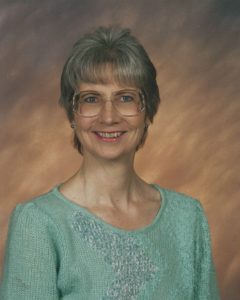Rebecca Lee Crumpler was a pioneer, but not the sort who climbed a weather-beaten prairie wagon, wrapped her work-worn fingers around the reins of a team of horses and then drove the rig across rushing rivers.
This 19th century trailblazer broke the barriers of race and gender to become the first female Black physician in the United States.
Born a free Black woman in 1831, Ms. Crumpler grew up in Pennsylvania where she dogged the steps of her aunt, the neighborhood healer. While her little-girl-ears heard moans of pain and discomfort, her little-girl-eyes watched her aunt bring relief and healing. In this community classroom Ms. Crumpler developed medical skills, which then led her to Massachusetts where she worked as a nurse for eight years. Her medical aptitude caught the attention of her supervising doctor who encouraged her to attend the New England Female Medical College. She began her studies in 1861 and concluded them in 1864, becoming the first Black female doctor in the United States.
This amazing feat earned Dr. Rebecca Lee Crumpler a place in history. But it was not the end of her story.
In 1865, the Civil War now over, Dr. Crumpler became aware that newly-freed poor Blacks needed medical services in the South. Nudged by her desire to ease their suffering, she moved to Virginia where she worked with the Freedmen’s Bureau. Though the title “M.D.” opened more doors of opportunity to use her healing skills, she was still Black, and still a woman, and thus her efforts were hindered by non-Black administrators, physicians and druggists. Yet cords of courage and threads of tenacity wove throughout her days, compelling her to battle through these challenges for five years.
Upon returning to Boston, Dr. Crumpler continued to practice medicine in the Black community of Beacon Hill, both outside and inside her home on Joy Street. She focused on women and children, without regard to their ability to pay. The house on Joy Street has been included on the Boston Women’s Heritage Trail.
In 1883, Dr. Crumpler became one of the first Blacks to publish a medical book. Entitled A Book of Medical Discourse, this two volume set stemmed from the extensive medical notes she had kept over the years, and focused on medical care for women and children.
These feats earned Dr. Crumpler a place in history, but her story still speaks to this generation, including those in the writing community. Writers of historical fiction set in this time period might find Dr. Crumpler−whether as a child, nurse, medical student, doctor or author−a stimulating real life personality for a hero or heroine to meet during the unfolding of their own fictional story.
Moving beyond the possibilities of weaving historical events and people into our fictional works, today’s writer can look to Dr. Crumpler as an example of pluck and persistence. She invested years honing her skill, yet still faced criticism and rejection. Did she ever feel like quitting? We can only speculate. But tempted or not, her life’s testimony says she did not give in to the resistance and conflicts she met along the way. Instead, she persevered, and ultimately achieved what others in her lifetime likely thought an impossible dream.
A writer’s takeaway?
Dream on.
Jeannine Brummett lives in South Carolina with her husband of nineteen years, Don, who shares his three adult sons and three grandchildren with her. Reading is big on her list of things to do, but she also thrives on TV crime dramas, NBA basketball, and marvels at the critters and fowl life that live at the pond behind their house. She loves to sing praise songs, attend Bible Study, and help at a local food pantry.






No Comments